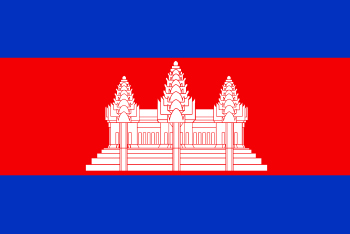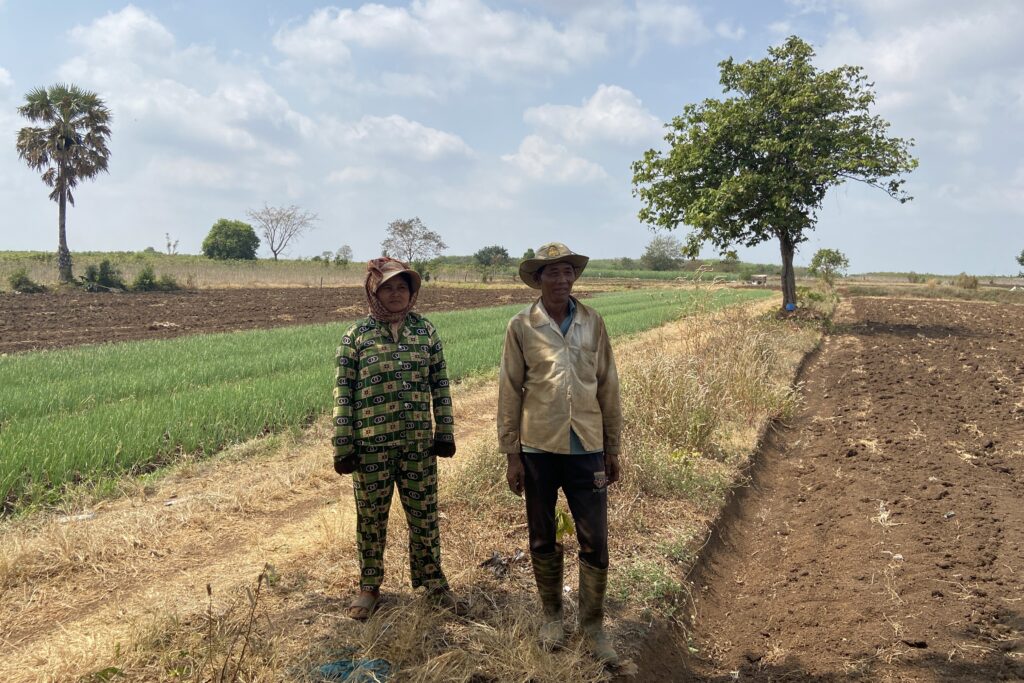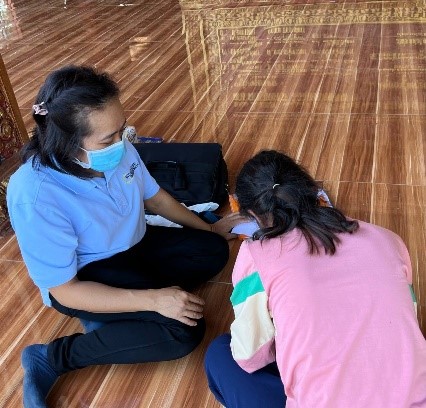 Cambodia Tbong Khmum
Cambodia Tbong Khmum
$40,296 needed of $45,000

Implementing Organization
World Hope International (WHI)
Program Summary
The Tbong Khmum Livelihood Project aims to create livelihood opportunities for vulnerable communities to help improve their household incomes and reduce their vulnerabilities to exploitation, unsafe migration and help prevent human trafficking through improved access to agricultural and non-agricultural skills development in selected communities in Dombae District, Tbong Khmum Province.
The main component of the project is to develop market-driven agricultural and non-agricultural enterprises using appropriate approaches being tested with model farmers in the current on-farm trials in Kork Srok commune, Dombae District.
To help reduce unsafe migration, human trafficking and exploitation of vulnerable families resulting from the impact of COVID19 to poor households, awareness raising is extended to schools as additional prevention activities. Small groups of men and women are established in communities for Keeping Safe activities.
Capacity building of service providers and social workers is being implemented for a more trauma-sensitive client-centered approach as they respond to the needs of survivors of human trafficking, exploitation and sexual and gender-based violence.
Success Stories

Intervention and Healing from Domestic Violence
A woman who survived severe domestic violence has begun to heal and move past the trauma now that her husband has been jailed and she’s getting community support.
Let’s call her Ming. She’d already divorced her first husband for drunkenness. Things seemed to be going well with her second husband, with whom she had two daughters, until he began drinking, gambling and harming her physically. All too often he threatened to kill her.
Like victims of trauma anywhere, she began to suffer physically, mentally and emotionally, with intrusive flashbacks, debilitating fear, stress, hypervigilance, self-blame, isolation, and difficulty sleeping. Her family blamed her for going back to him after he’d abused her, but she said she did it for the children. She gave up calling the police despite the chronic abuse because it would resume as soon as he was out of custody. Thankfully, a village chief referred her to World Hope International (WHI) staff who reported the assaults to police and spoke on her behalf. Ming felt relieved when the perpetrator was jailed.
With social challenges of human trafficking, unsafe migration and gender-based violence occurring all-too-often in Cambodia, WHI is coming alongside the vulnerable to help them thrive. This program involves helping participants earn a decent livelihood so they aren’t as vulnerable to these situations in the first place, providing training on prevention of violence for women and children of all ages, and promoting awareness of reporting and healing opportunities for those who have already been victims.
Now Ming meets with a social worker and has developed a safety plan given her risky situation, and says she feels calmer and more secure. She has received counseling, is practicing relaxation techniques, and has come to understand that the violence was not her fault.
Says Ming, “WHI helped me get treatment at the hospital and subsequent psychological support. They’ve provided regular follow-up, and have educated me about the basic law regarding violence against women and children. I am very aware of my own rights and also the rights of my girls.”
She has joined a women’s group established to empower women in the neighborhood and has learned a variety of ways to earn money. Ming believes that WHI’s initiatives in her community are vital and beneficial to survivors of all forms of violence and abuse.
Cambodia Tbong Khmum Program
Led by World Hope International
